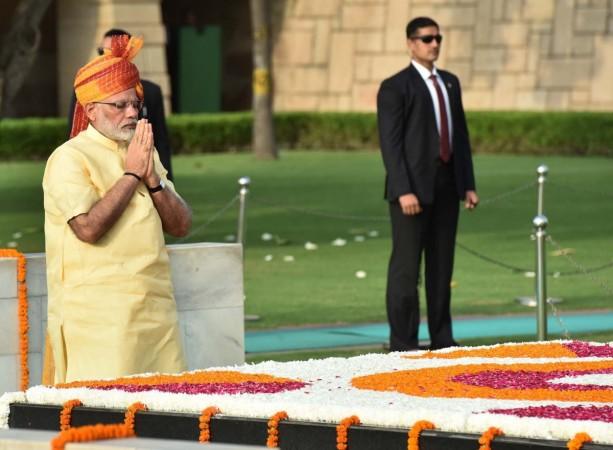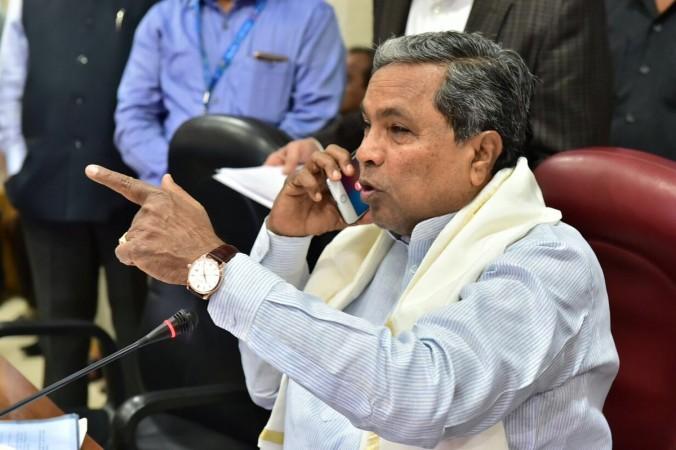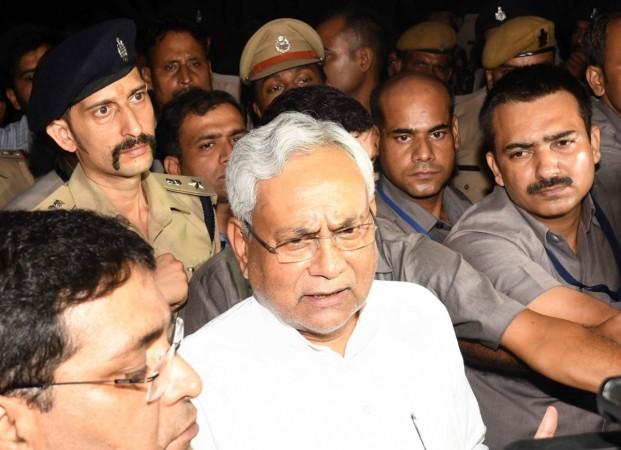
New Delhi is in the middle of a confrontation with Beijing over the Doklam border issue in the Sikkim sector. The Narendra Modi government is eager to establish that it is no less powerful than the Chinese and is even keen to go to the extent of an armed tussle. But while New Delhi is not ready to budge against an external enemy, there is ample evidence that it is not keen to compromise with its internal enemies as well.
By internal enemies, we mean Thiruvananthapuram, Kolkata, Bengaluru, Agartala, etc. Yes, each of these headquarters of non-BJP ruled states have emerged as 'alternative power centres' to New Delhi in terms of political assertions and the face-off has put a lot of strain on India's federal polity.
Left-ruled states' I-Day clash with saffron camp
Take for example, the twin incidents related to Kerala and Tripura, the two Left-ruled states that took place on the 71st Independence Day. In Kerala, RSS chief Mohan Bhagwat defied the order issued by the state's Left Democratic Front government to hoist the Tricolour at a government-aided school in Palakkad district.
It was told that only office heads or elected representatives would be allowed to hoist the National Flag but Bhagwat went ahead to do the same despite not qualifying as a candidate. Given the track record of the RSS-CPI(M) clash in the state which has intensified of late, the controversy snowballed with each side blaming the other.

In Tripura, too, the I-Day saw the BJP and CPI(M) locking horns as the the state's chief minister Manik Sarkar alleged that neither the Doordarshan nor All India Radio agreed to telecast his speech unless he had revised it. Sarkar's office said the CM would not change any content of the speech and called the step "unprecedented", "undemocratic", "autocratic" and "intolerant". CPI(M) General Secretary Sitaram Yechury hit out at Prime Minister Modi accusing him of stifling the voice of the Opposition.
Bengal, though no more Left-ruled, yet found itself at odds with Centre
West Bengal, though is no more ruled by the Left, but yet found itself at odds with the Centre as its chief minister, Mamata Banerjee, refused to accept the NDA government's instructions on how to celebrate the day in schools. Banerjee's government issued its own circular asking the schools not to pay heed to the central directive. "We need not learn patriotism from BJP," she said. This is not the only instance where Banerjee locked horns with the Centre. In the past, she disallowed bureaucrats posted in the state to attend PM's speech and reprimanded schools for telecasting Modi's words in classrooms.
Karnataka's Congress government is not ready to concede an inch

The Congress government of Karnataka has also criticised the Centre time and again on various issues – be it on putting up Hindi signs at Bengaluru Metro or on Swachh Bharat cess or H1B visa – besides drumming up Kannadiga sub-nationalism to neutralise the BJP ahead of the next year's Assembly elections.
Chief Minister Siddaramaiah has also supported the demand of a separate religion by a section of the Lingayats, a major vote-bank of the saffron party, to unsettle Modi-Amit Shah duo. The sum total of these instances of confrontation shows how desperate the Congress is to save its last major bastion in the country and even eager to go to the extent of dumping the Nehruvian legacy. The problem between Karnataka and Centre is certainly not as intense as it is for some other states but it exists.
Patna & Chennai have surrendered

Patna was another major centre which had taken on the BJP-ruled Centre but after Bihar Chief Minister Nitish Kumar took a U-turn and joined the BJP's camp which he had hated even a few years ago, it is no more an obstacle to the saffron party's pan-Indian project. Chennai also is nearing a surrender as Tamil Nadu's ruling AIADMK has been extremely weakened by the death of Jayalalithaa and the consequent split in the party and it has now very little chance of turning around without the help of the likes of Modi and local hero Rajinikanth.
India's federal functioning is under a lot of stress
The Indian federalism is now witnessing one of its most challenging times. The federal units are more empowered and assertive than ever before and the tendency of a strong Centre to reiterate its authority is making the confrontation inevitable. It will be wise for both the Centre and the states to honour their respective spheres of influence so that the federal functioning isn't destroyed and the national cohesion gets weakened irreparably.
New Delhi is too much preoccupied with Beijing at the moment. It is high time it also spares a few thought about managing its relations with Thiruvananthapuram, Kolkata, Agartala, Bengaluru and the likes.
















